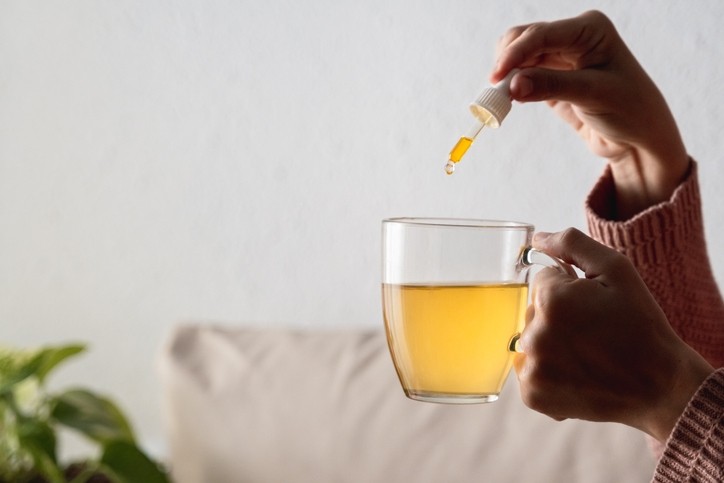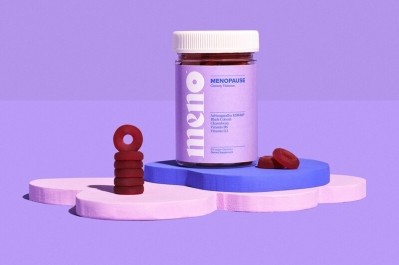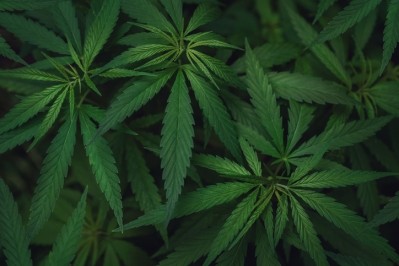Study: CBD has therapeutic potential for managing menopause

Estrogen levels can vary for several reasons, with the most significant risk factor being age. Symptoms of low levels can lead to weak bones, painful intercourse, hot flashes, weight gain and even an increased risk of urinary tract infections.
OB/GYN Alyssa Dweck, MS, MD, Chief Medical Officer at Bonafide, said the company’s annual menopause survey showed that 41% of women prefer to use naturally derived products when it comes to treatments for menopausal symptoms. “Patients are looking to avoid ingredients with fragrance, dyes, parabens and phytoestrogen, in addition to being vegan, gluten free, and lactose free.”
Common ingredients used to manage menopause symptoms include things like red clover, dong quai, black cohosh and evening primrose. But what about CBD?
The non-psychoactive cannabinoid has been credited with relieving everything from pain and inflammation to reducing epileptic seizures and anxiety. And now researchers at Rutgers University are hoping menopause management will be added to that list.
The study
Research published in Frontiers in Pharmacology explained that over the course of 18 weeks estrogen-deficient mice were fed a steady diet of CBD-laced peanut butter balls, with half the mice being fed balls containing CBD.
Findings
The untreated estrogen-deficient mice developed symptoms that resembled those of postmenopausal human females, such as metabolic dysfunction, evidence of inflammation, lower bone density and lower levels of beneficial gut bacteria. However, the mice that took the CBD showed significant improvement in those symptoms.
The researchers found that when estrogen-deficient mice were fed CBD, they showed marked improvement in several key areas. Their bloodstreams more readily disposed of glucose and they burned more energy. Additionally, their bone density improved, they had less intestinal inflammation and fewer bone tissues.
Bloom in Lactobacillus
The CBD group also possessed higher levels of beneficial gut bacteria.
“Interestingly, CBD promoted a bloom in Lactobacillus species. Prior studies indicated that probiotic Lactobacillus treatment may protect against bone loss by reducing gut permeability and levels of proinflammatory cytokines in the gut, circulation, and bone. A recent meta-analysis assessed the effects of probiotic supplementation on bone mineral density (BMD) and bone turnover markers for postmenopausal women and suggested that probiotics may increase lumbar BMD,” the authors noted.
Beyond anecdotal evidence
“This preclinical study is the first to suggest the therapeutic potential of CBD for alleviating symptoms of estrogen deficiency,” said Diana Roopchand, assistant professor in the Department of Food Science of the Rutgers School of Environmental and Biological Sciences (SEBS) and senior author on the study. “There is much anecdotal evidence of CBD’s health benefits for menopausal and postmenopausal women, but our study is the first to investigate some of the claims in an established preclinical model of post menopause.”
Roopchand added that CBD is already being used by many women to deal with symptoms of menopause and post menopause and this study provides preclinical evidence to support further investigation of CBD as a therapeutic for post menopause-related disorders.
“Our results indicate that CBD treatment of OVX mice impacts the immune system and the gut microbiota to improve energy metabolism and bone homeostasis. These data indicate that CBD modulates a gut-bone axis to favorably alleviate several chronic disease symptoms of post menopause,” the authors concluded.
Source: Frontiers in Pharmacology
doi.org/10.3389/fphar.2022.900667
“Cannabidiol-Treated Ovariectomized Mice Show Improved Glucose, Energy, and Bone Metabolism With a Bloom in Lactobacillus”
Authors: K. Sui et al.
















